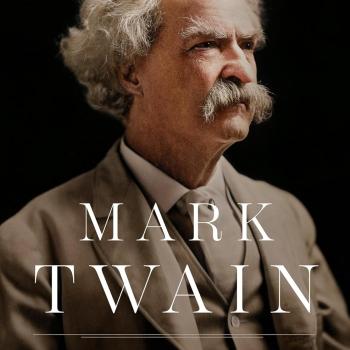The Bible verses appearing most frequently on Pinterest, then, speak directly to the human vices parading past in the same space. What are those vices? The chocolate cakes and the beautiful bodies on display speak to gluttony and lust, but I would argue that these natural desires of the flesh are benign most of the time, even beautiful in their best forms. The real temptation of Pinterest, I would suggest, is the lure of an imaginary identity, a Pinterest-self for display only, a profile created entirely by the visual consumption of images rather than imaginative production. Look at my hip fashion sense, look at the sophistication of my imaginary home, look at the expensive shoes I found, look at the perfection of my hair, look at the decadence (or the virtue) of my recipe.
Self-fashioning in full view of others, free from the constraints that discipline our desires in the real world, can become an exercise in prideful status-seeking. A recipe for oreo-wrapped-in-cookie-dough-covered-in-brownie-batter may be a crime against good taste and cardiovascularity, but my mocking re-pin is the sin. The Pinterest-self is a self on display, not a self in relation, and therein lies the vice. Therein, too, lies insecurity and crippling anxiety, because an identity based entirely on the display of images—actual images or metaphorical "image"—is inherently fragile, vulnerable to attack from every corner. Thus the Bible verses reassuring our anxious Pinterest-selves that our true identities are known and valued by God, and exhorting our status-seeking Pinterest-selves to replace envy with love.
In the end, Pinterest is a dialogue between the better angels of our nature and the devils on our shoulders. "10 uses for heavy cream" stands guiltily—or brazenly—between "Inner-thigh fat busters" and "Skinny squash soup." "50 tips for going green" clucks gently at "15 awesomely-unnecessary kitchen remodels." This is how we arrive at that most specialized of Pinterest genres: the pin about Pinterest, the meta-pin. Here the conflict between id and superego, the status-seeking and hedonism, the anxiety and insecurity all come bubbling up to the surface. These images are ironic, self-aware, gently rueful, and very funny, and they provide a bracing tonic for the unreflective pin-o-mania to which I sometimes fall prey.
I don't expect to give up Pinterest, at least not until it has run its natural course in my life. Status-seeking is an ever-present fact of human social life, and the proper response is to discipline its anti-social extremes rather than to exorcise it entirely. The same is true of the novelty-seeking, hedonism, and consumption I find on Pinterest: we should master these desires, but not expect to root them out entirely. So bring on your quinoa brownies, your Bible-verse Toms, your infants photographed in grossly contorted poses, Pinterest. She who tires of re-pinning tires of life.





